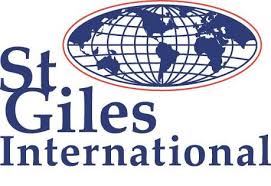
Lean Project Management
Course ID: 2509080101259ESH
Course Dates : 08/09/25 Course Duration : 5 Studying Day/s Course Location: London, UK
Language: Bilingual
Course Category: Professional and CPD Training Programs
Course Subcategories: Leadership and Management Excellence
Course Certified By: ESHub CPD & LondonUni - Executive Management Training
* Professional Training and CPD Programs
Leading to:
Executive Diploma Certificate
Leading to:
Executive Mini Masters Certificate
Leading to
Executive Masters Certificate
Certification Will Be Issued From :
From London, United Kingdom
Course Fees: £5,120.30
Vat Not Included in the price. VAT may vary depending on the country where the course or workshop is held.
Click to Pay
Date has passed please contact us Sales@e-s-hub.com
Course Information
Introduction
In an era where efficiency, adaptability, and value creation are paramount, Lean Project Management has emerged as a transformative approach for organizations seeking to optimize their operations. Rooted in the principles of Lean Thinking, this methodology emphasizes eliminating waste, enhancing customer value, and fostering continuous improvement. It is particularly relevant for industries grappling with resource constraints, evolving customer demands, and competitive pressures. By adopting Lean Project Management practices, organizations can streamline processes, reduce costs, and deliver projects that align more closely with stakeholder expectations.
The origins of Lean Thinking trace back to the Toyota Production System, which revolutionized manufacturing by focusing on minimizing waste while maximizing productivity. Over time, these principles have transcended manufacturing and found applications in diverse fields such as healthcare, software development, construction, and service delivery. Despite its widespread adoption, many professionals struggle to implement Lean effectively due to gaps in understanding its core tenets or misalignment with organizational culture. This course addresses these challenges by providing a comprehensive framework for integrating Lean methodologies into project management practices.
One of the key obstacles faced by practitioners is the misconception that Lean is solely about cutting costs or reducing headcount. In reality, it is about creating value through systematic problem-solving and empowering teams to innovate. For instance, a case study from a leading technology firm demonstrated how applying Lean principles reduced project lead times by 30% while simultaneously improving product quality and team morale. Such examples underscore the importance of mastering Lean tools and techniques to achieve sustainable results.
Professionals who master Lean Project Management not only enhance their own skill sets but also contribute significantly to their organizations' success. On an individual level, they gain the ability to lead cross-functional teams, drive process improvements, and make data-driven decisions. Organizations benefit from increased operational efficiency, faster time-to-market, and improved customer satisfaction. Furthermore, the alignment of Lean with Agile methodologies offers practitioners a versatile toolkit adaptable to various project environments.
The relevance of Lean Project Management is further amplified by emerging trends such as digital transformation, remote work models, and sustainability initiatives. As companies strive to remain agile and resilient, Lean provides a structured yet flexible approach to managing change. Consider the example of a global logistics company that implemented Lean practices to optimize supply chain operations during the pandemic. By mapping workflows, identifying bottlenecks, and engaging employees in kaizen events, they achieved significant cost savings and enhanced service reliability.
This course is designed to equip participants with the knowledge and skills necessary to navigate complex project environments using Lean methodologies. Through a blend of theoretical insights, practical exercises, and real-world case studies, attendees will learn how to apply Lean principles to improve project outcomes. Whether you are new to Lean or seeking to deepen your expertise, this program offers valuable insights and actionable strategies to elevate your project management capabilities.
Objectives
By attending this course, participants will be able to:
Analyze the foundational principles of Lean Thinking and their application to project management contexts.
Evaluate current project workflows to identify areas of waste and opportunities for improvement.
Design efficient project plans incorporating Lean tools such as Value Stream Mapping (VSM) and Kanban boards.
Implement continuous improvement cycles (e.g., PDCA loops) to enhance project performance iteratively.
Apply collaborative decision-making frameworks to foster team engagement and innovation.
Assess the impact of Lean interventions on key performance indicators (KPIs) related to cost, time, and quality.
Integrate Lean methodologies with other project management approaches like Agile and Six Sigma.
Who Should Attend?
This course is ideal for:
Project managers and team leaders responsible for driving operational excellence within their organizations.
Consultants and business analysts tasked with optimizing client processes and delivering high-value solutions.
Engineers and technical professionals involved in large-scale projects requiring precision and efficiency.
Executives and senior leaders seeking to embed Lean principles into organizational culture.
These groups will find the course invaluable because it bridges the gap between theory and practice, offering actionable strategies tailored to modern workplace challenges. While prior exposure to Lean concepts is beneficial, the course is structured to accommodate both beginners and intermediate learners, ensuring all participants build a strong foundation before advancing to more complex topics.
Training Method
• Pre-assessment
• Live group instruction
• Use of real-world examples, case studies and exercises
• Interactive participation and discussion
• Power point presentation, LCD and flip chart
• Group activities and tests
• Each participant receives a 7” Tablet containing a copy of the presentation, slides and handouts
• Post-assessment
Program Support
This program is supported by:
* Interactive discussions
* Role-play
* Case studies and highlight the techniques available to the participants.
Daily Agenda
Daily Schedule (Monday to Friday)
- 09:00 AM – 10:30 AM Technical Session 1
- 10:30 AM – 12:00 PM Technical Session 2
- 12:00 PM – 01:00 PM Technical Session 3
- 01:00 PM – 02:00 PM Lunch Break (If Applicable)
- Participants are expected to engage in guided self-study, reading, or personal reflection on the day’s content. This contributes toward the CPD accreditation and deepens conceptual understanding.
- 02:00 PM – 04:00 PM Self-Study & Reflection
Please Note:
- All training sessions are conducted from Monday to Friday, following the standard working week observed in the United Kingdom and European Union. Saturday and Sunday are official weekends and are not counted as part of the course duration.
- Coffee and refreshments are available on a floating basis throughout the morning. Participants may help themselves at their convenience to ensure an uninterrupted learning experience Provided if applicable and subject to course delivery arrangements.
- Lunch Provided if applicable and subject to course delivery arrangements.
Course Outlines
Foundations of Lean Thinking
Overview of Lean Philosophy and History
The Five Principles of Lean: Value, Flow, Pull, Perfection, and Respect for People
Identifying Waste in Projects (TIMWOOD Framework)
Introduction to Key Lean Tools: 5S, Kaizen, and Gemba Walks
Day 2:
Applying Lean to Project Planning
Creating Value Stream Maps for Project Processes
Designing Efficient Workflows Using Kanban Systems
Setting SMART Goals Aligned with Lean Objectives
Prioritizing Tasks Based on Customer Value
Day 3:
Continuous Improvement and Problem Solving
Understanding the PDCA Cycle (Plan-Do-Check-Act)
Root Cause Analysis Techniques: Fishbone Diagrams and 5 Whys
Facilitating Kaizen Events for Rapid Improvements
Measuring Success with Key Performance Indicators (KPIs)
Day 4:
Collaboration and Leadership in Lean Projects
Building High-Performing Teams Through Lean Leadership
Encouraging Employee Engagement and Empowerment
Conflict Resolution Strategies in Lean Environments
Aligning Lean Initiatives with Organizational Strategy
Day 5:
Advanced Applications and Integration
Combining Lean with Agile Methodologies for Hybrid Approaches
Leveraging Technology for Lean Project Management
Case Studies: Lessons Learned from Successful Lean Implementations
Developing an Action Plan for Post-Course Application



















































